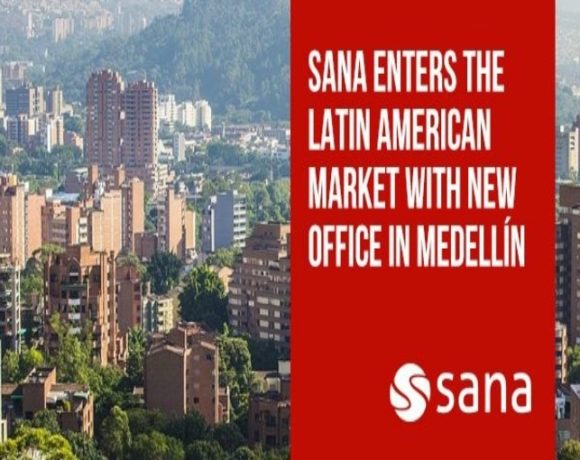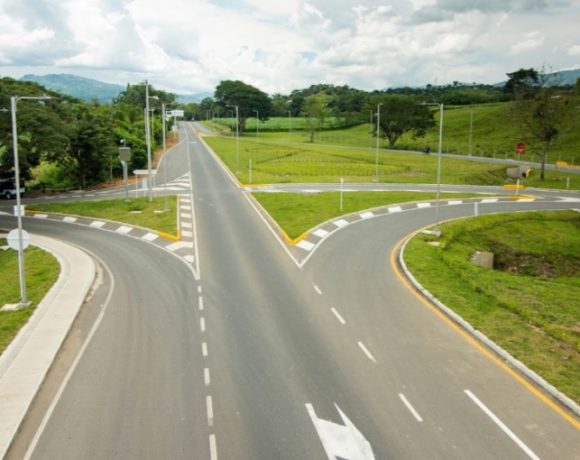Enka, Coltejer Post Year-on-Year Net Losses for 2Q 2018, But Exports Improving

While sales and export revenues are starting to improve for Medellin’s textile manufacturing giants, net profits are still hard to come by, as evidenced by the latest second quarter (2Q) 2018 results from Enka Colombia and Coltejer.
In a financial report issued August 6, Enka revealed that gross income rose to COP$196 billion (US$67 million) in 2Q 2018, up from COP$169 billion (US$58 million) in 2Q 2017.
“Sales grew 16% in pesos and 8% in volume, with good performance in all businesses” and “the increase in sales compensates the impact of the revaluation of the peso [against the U.S. dollar],” the company added.
However, rising administrative, tax and sales costs resulted in a dip in 2Q 2018 earnings before interest, taxes, depreciation and amortization (EBITDA), to COP$10.6 billion (US$3.6 million), versus COP$12 billion (US$4.1 million) in 2Q 2017, according to Enka.
As a result, Enka posted a relatively slim COP$999 million (US$345,000) net loss for 2Q 2018, versus a net profit of COP$1.9 billion (US$655,000) in 2Q 2017.
Recycling plant start-up
Meanwhile, Enka started-up its new, 3,300 tons/year polyolefin recycling plant during July, “thus venturing into the recycling of polyethylene and polypropylene” for synthetic fabrics.
The plant “will transform the byproducts of the PET recycling process (plastic caps and labels) into sustainable products with high quality standards for the plastic sector. In addition, it will serve as a pilot plant for the search for sustainable solutions for other types of plastics and as a gateway to future growth and innovation,” according to Enka.
As for its first half (1H) 2018 results, “operating income as of June 2018 reached COP$196 billion [US$67 million], an increase of 16% compared to the same period of the previous year, mainly due to the growth in sales volume and the higher international prices of the petrochemical chain, which offset the revaluation,” according to Enka.
Recycled plastics markets rebound
As for sales to the Colombian domestic market, revenues grew 17% year-on-year and volume rose 5%, “favored by the good results of the measures implemented by the [Colombian] government to avoid under-invoicing [by contraband importers] at the beginning of the year,” according to Enka.
Similarly, “the continuous development of markets for high-value-added [products] and the deepening of the free-trade agreements with strategic partners have allowed us to increase exports by 16% in revenues and 13% in volume, reaching an [export] share over total sales of 48% ,” according to Enka.
“We highlight the sales growth of the U.S. and Canadian markets, thanks to new approvals [for import into North America] of special technical threads, as well as in Brazil and Argentina, where new business opportunities continue to be identified,” according to Enka.
For its recycled plastic fibers, 1H 2018 sales rose 24% year-on-year, to COP$62 billion (US$21 million.
“EKO-Pet” sales grew 22% in pesos and 3% in volume year-on-year, with the plant “operating at maximum capacity. Sales are destined 100% to the local market, supporting the sustainability strategies of the main producers of [plastic-bottled] beverages in Colombia,” according to Enka.
As for its “EKO-Fibras” synthetic fibers, “lower Asian offer [from China to nations where Enka competes with Asian producers] due to greater environmental restrictions in China and the import price thresholds implemented by the [Colombian] government have allowed sales to grow 27% in pesos and 15% in volume, especially in the Brazilian market,” according to Enka.
Textile, industrial businesses grow
Operating income from textile/industrial products grew 13% year-on-year, to COP$134 billion [US$46 million], according to Enka
Industrial thread sales grew 9% in revenues and 4% in volume, “driven by higher sales of technical threads to the U.S. and Canada, markets that the company has defined as strategic due to its high specialization,” according to Enka.
As for the filaments-textiles business, “the implementation of the measure of minimum price thresholds for textile imports [into Colombia’ has given greater transparency to the Colombian market, favoring local sales. In addition, new businesses with Argentina are being developed, taking advantage of the greater economic activity and the free trade agreements with Mercosur. As a result, sales grew 17% in revenue and 14% in volume,” according to Enka.
Coltejer exports soar
As for Coltejer, this textile giant saw 1H 2018 gross revenues rise to COP$75.5 billion (US$26 million) compared to COP$72.5 billion (US$25 million) in 1H 2017, thanks to a 124% jump in exports year-on-year.
Cost of sales also declined, to COP$70.5 billion (US$24 million) in 1H 2018 versus COP$73 billion (US$25 million) in 1h 2017. However, finance costs in 1H 2018 rose to COP$21 billion (US$7.2 million) versus COP$14 billion (US$4.8 million) in 1H 2017.
As a result, Coltejer posted a net loss of COP$13.7 billion (US$4.7 million) for 1H 2018 versus a net loss of COP$21 billion (US$7.2 million) in 1H 2017.
For 2Q 2018, gross revenues improved to COP$39 billion (US$13.4 million) versus COP$31 billion (US$10.7 million) in 2Q 2017. Finance costs also rose in 2Q 2018, to COP$10.7 billion (US$3.7 million), versus COP$6.8 billion (US$2.3 million) in 2Q 2017.
As a result, Coltejer posted an after-tax net loss of COP$12.5 billion (US$4.3 million) in 2Q 2018 versus an after-tax net loss of COP$10.8 billion (US$3.7 million) in 2Q 2017.
















